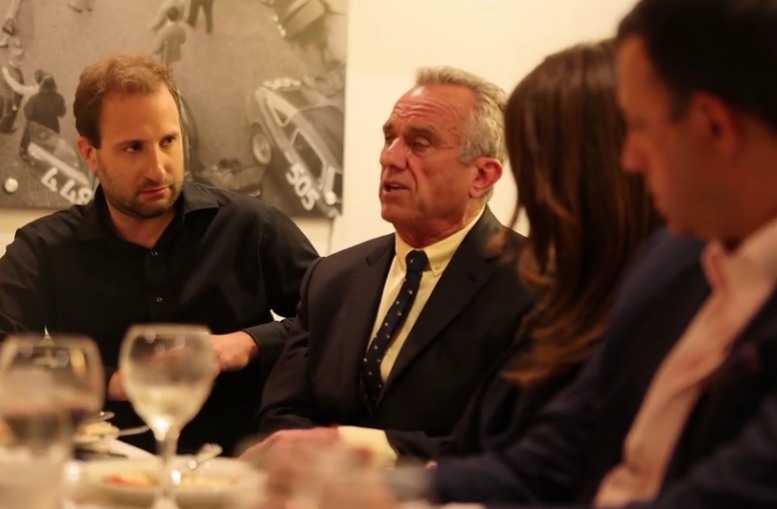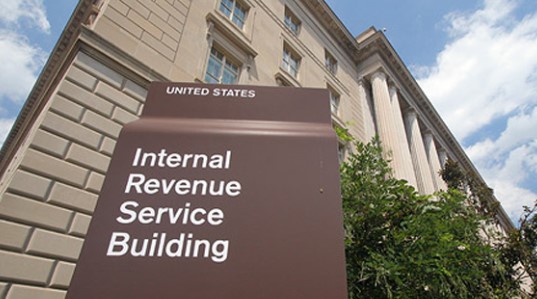 Parler
Parler Gab
Gab
- Secretary RFK Jr. is streamlining the Department of Health and Human Services (HHS), cutting 19,000 jobs, consolidating divisions and centralizing key functions to reduce inefficiency and redundancies.
- Kennedy supports Susan Monarez, a non-physician with a microbiology Ph.D., as CDC director, sparking debate. He also defended the resignation of FDA vaccine chief Peter Marks, calling it necessary to "clean house."
- Kennedy is pushing for transparency in vaccine research, including reevaluating potential links to autism, citing studies by Dr. David Geier. He emphasizes informed consent and rigorous safety reviews over blanket mandates.
- His agenda includes removing fluoride from water due to health concerns and regulating ultra-processed foods, targeting toxins in the food supply to combat chronic diseases.
- Kennedy aims to reduce pharmaceutical industry sway over agencies like the FDA and NIH, advocating for unbiased science and greater accountability in public health policy.
Shedding light on redundancies and reconfiguring bureaucracies
Kennedy’s first major act as Secretary was to restructure HHS, aiming to reduce its workforce from 81,000 to 62,000 employees. The downsizing is expected to eliminate 15,000 positions, including the consolidation of 28 divisions into 15 and the reduction of 10 regional offices to 5. The rationale behind this move is to address the systemic redundancies that have plagued HHS for decades, much like the disjointed computer systems managing Social Security, CMS and the NIH. The reorganization efforts have been prompted by President Trump’s Executive Order on government efficiency, which seeks to streamline processes and centralize functions. In this vein, Kennedy’s plan combines personnel cuts with the centralization of Human Resources, Information Technology, Procurement, External Affairs and Policy. This restructuring is not merely about cost-cutting but about enhancing operational efficiency and responsiveness to public health needs. However, this bold move has not gone uncontested. The resignation of Peter Marks, the top FDA official overseeing vaccines, gene therapies and the blood supply, has sparked heated debates. Marks’ departure, which he attributed to pressure from Trump administration officials, has drawn criticism from former FDA commissioners and public health experts. Critics argue that his resignation signals a retreat from the rigorous scientific standards that have upheld vaccine safety for decades. Kennedy, however, has hailed Marks’ departure as a necessary step towards “cleaning house” and addressing deep-rooted issues within the agency.Tailoring regulatory oversight and striking a balance
Despite the criticisms, Kennedy has moved forward with several significant appointments, including his strong support for Susan Monarez as the next CDC Director. Monarez, who holds a Ph.D. in microbiology and immunology but lacks a medical degree, has been vocal about her pro-vaccine stance and her belief in the role of artificial intelligence in improving health outcomes. Her nomination has generated mixed reactions, particularly among health freedom advocates and vaccine skeptics who perceive her as a part of the “Deep State.” Kennedy’s support for Monarez underscores his commitment to modernizing public health institutions while ensuring they remain rooted in scientific evidence. The realignment of responsibilities and the appointment of new leadership may help shift the focus of the CDC and other agencies towards preparedness for epidemics and chronic illnesses, rather than losing sight of their primary functions in the pursuit of ambitious but tangential goals. One of the most significant policy shifts under Kennedy’s leadership has been the revitalized consideration of potential links between vaccines and autism. There was a federal study led by Dr. David Geier in 2002 to investigate these links. Although initially dismissed by mainstream medical authorities, Geiers’ research has been pivotal in challenging prevailing assumptions about vaccine safety. This work, spanning over two decades, includes more than 100 articles that question the conventional wisdom and raise concerns about the safety of certain vaccine formulations. David’s father, Dr. Mark Geier, passed away in 2025, leaving behind a legacy of expansive research into vaccine safety. Their study on the “True Story of Pertussis Vaccination” provides a poignant critique of the transition from whole-cell to acellular pertussis vaccines, highlighting the devastating impact of slow adoption in the U.S. Dr. Mark Geier was vocal about the ethical implications of continuing to use whole-cell pertussis (wP) vaccines in low-resource settings, which still incorporate the more dangerous compounds.Facing the challenges of vaccine controversy and corporate influence
Kennedy’s approach to vaccines has been unequivocally pragmatic. Far from advocating for complete bans or mandates, he emphasizes the importance of vaccine safety and informed consent. He believes that transparency and access to comprehensive data are paramount for fostering trust and allowing individuals to make informed decisions about their healthcare. “This is not about banning vaccines,” Kennedy emphasized in an interview with The Epoch Times. “It’s about restoring transparency and ensuring that every single vaccine undergoes rigorous, science-based safety studies.” While Kennedy acknowledges the critical role of vaccines in public health, he also points to the potential risks posed by certain formulations. His call for research into the chemical content of vaccines and the long-term impacts of immunization schedules is a welcome departure from the one-size-fits-all stance that has dominated vaccine discourse. By promoting evidence-based science and advocating for greater transparency, Kennedy seeks to strike a balance between safeguarding public health and protecting individual freedoms.Building a healthier future through environmental and dietary reforms
Beyond vaccines, Kennedy’s vision extends to broader environmental and dietary reforms. He has been particularly vocal about the pervasive presence of toxins in the food supply and the need for stricter regulation of chemical additives. Kennedy argues that ultra-processed foods, laden with artificial colors, preservatives and pesticides, are contributing to the rise in chronic diseases among children and adults. In response, Kennedy has advocated for the removal of fluoride from public water systems, citing concerns about its impact on cognitive development and other health effects. His stance on fluoride is emblematic of his broader mission to challenge the orthodoxy surrounding public health. While the CDC and other health authorities have long hailed water fluoridation as one of the greatest public health achievements, Kennedy’s call for a reevaluation reflects a growing skepticism about the long-term consequences of chemically manipulating the food supply.A new dawn for public health and the drive for transparency
As Kennedy continues to push for reforms, he faces formidable challenges from entrenched interests and political opposition. Nonetheless, his initiatives signal a promising shift towards a more transparent, accountable and science-driven public health system. By addressing issues of corporate capture and bureaucratic inefficiency, Kennedy aims to restore the integrity of agencies like HHS and ensure that their primary mission remains the well-being of the American people. In the words of Kennedy himself, “Eighty percent of NIH grants go to people who have conflicts of interest. Seventy-five percent of the FDA funding doesn’t come from taxpayers. It comes from pharma. And pharma executives and consultants and lobbyists cycle in and out of these agencies,” Kennedy said.Army weighs massive troop cuts amid budget pressures and strategic shift
By Laura Harris // Share
IRS begins issuing Reduction In Force notices to employees in preparation for mass layoffs
By Laura Harris // Share
White House directs NIH to study “regret” following genital mutilation
By Laura Harris // Share
Tesla’s Sentry Mode exposes politically motivated vandals nationwide
By Cassie B. // Share
New study links mRNA vaccines to GENETIC CHANGES – and not the good kind
By Ava Grace // Share
A comprehensive guide to DANDELIONS, an ancient herbal medicine and superfood
By Ava Grace // Share
Governments continue to obscure COVID-19 vaccine data amid rising concerns over excess deaths
By patricklewis // Share
Tech giant Microsoft backs EXTINCTION with its support of carbon capture programs
By ramontomeydw // Share
Germany to resume arms exports to Israel despite repeated ceasefire violations
By isabelle // Share










